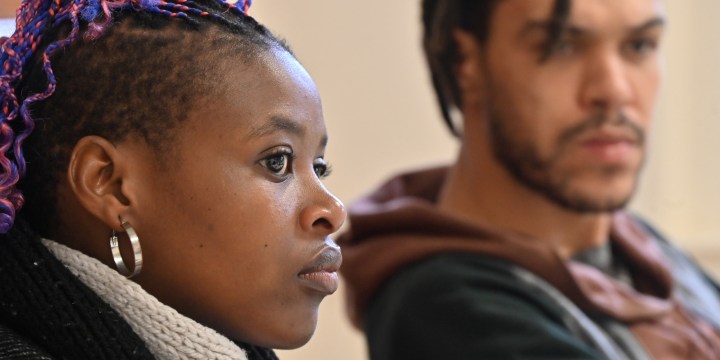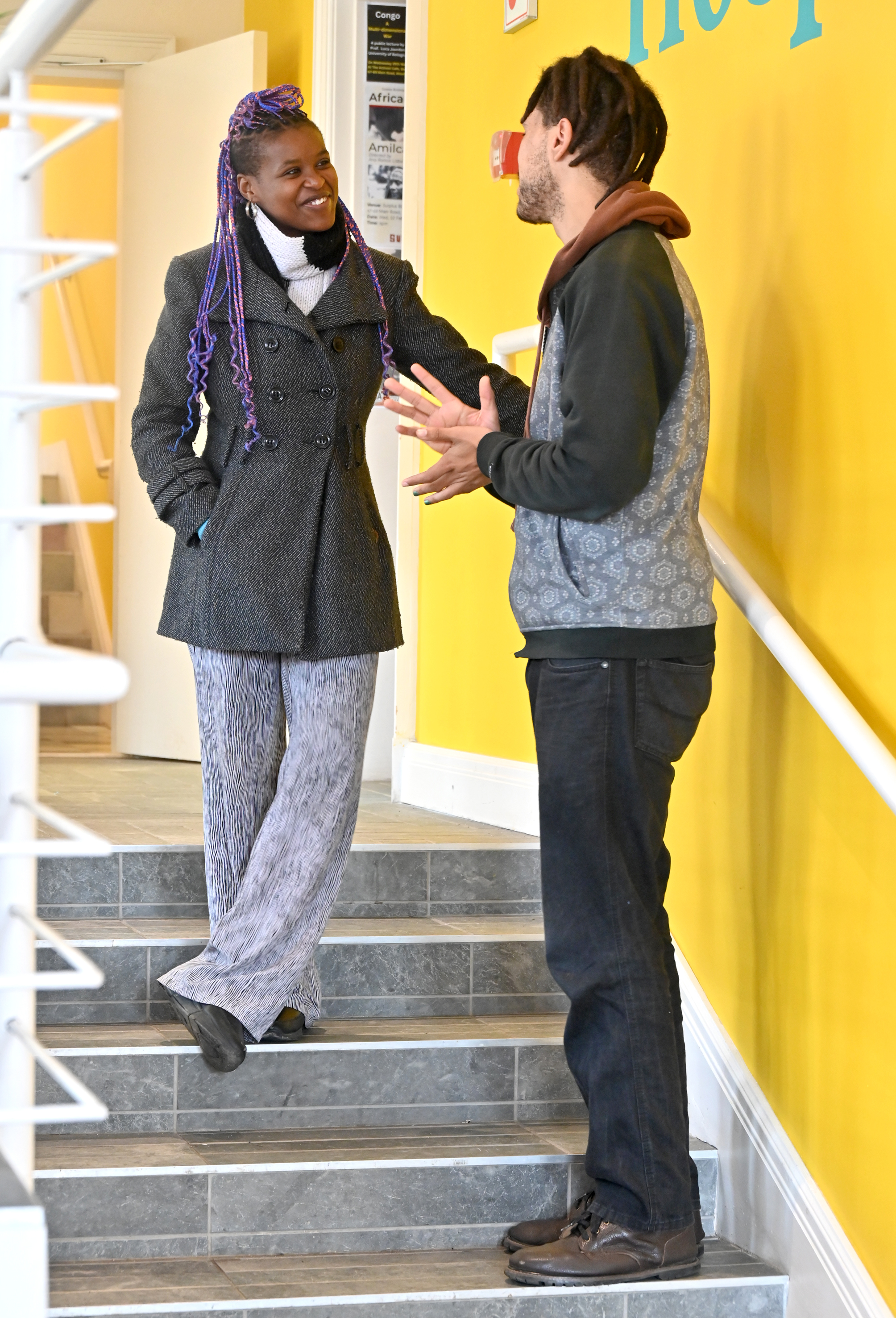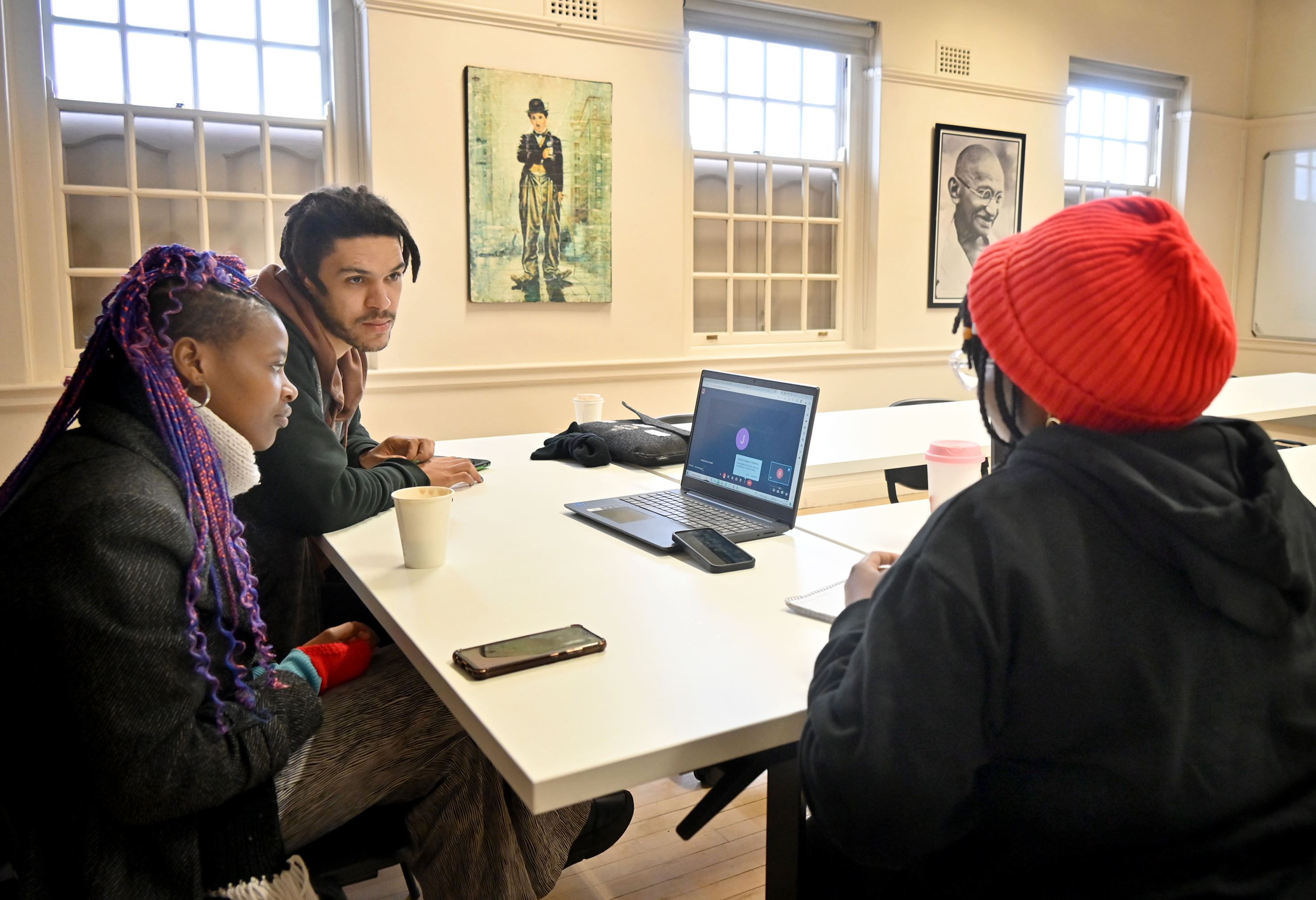
HUNGER CRISIS
Young poets explore new ways of talking about the shame and stigma of food insecurity

‘My mother taught me to rather say I am hungry than dying of hunger,’ says food activist and poet Jerome Coetzee, one of a group of activists describing new ways of talking about hunger.
In Cape Town, a group of young poets is charting new ways to engage with food systems and working towards deconstructing the sense of shame that shrouds the conversation around hunger, the face of hunger, and the mental health struggles of those who are food insecure.
Daily Maverick sat down with Sanelisiwe Mimi Nyaba, Dylan McXabe and Jerome Coetzee, all in their twenties, to discuss their experiences of food insecurity in the context of the South African food systems as well as their activism through poetry.
The three are part of a group of 15 poets who have compiled and performed an anthology of poems called Fresh Offerings; Poems on food, agency and urgency.
The anthology includes an arresting poem by Vuyokazi Ngemntu, titled Mr Corporation, which vividly shows the impact of corrupted food systems for corporate gain and the resultant hunger:
Mr corporation?
Why does my hunger feed your greed?
Why make of my body fertile ground for your sterile seed?
My perpetually aching belly always empty
You muffle my cries with your gestures and lies
My emaciated limbs
It’s the little things like structural inequality and life quality
The indignity of our indigence
The cause and the consequence
The effects ripple
While we the people succumb to despair.
You don’t even care, Mr corporation.
Speaking about using poetry as an extension of their food and hunger activism, the poets said that they put together a group of about 15 artists who engaged in food security research in 2020.
Read more in Daily Maverick: A serious proposal to overcome child hunger… but will we choose it?
“It wasn’t hard because I think artists are quite incredible in the way that they are able to absorb information and we were working with people who are already engaging with different social issues that connect. The one definition I think about artists is that we are not numb but sensitive to these things,” Nyaba explained.
She went on to say that the question they wrestled with through the poetry is how to look beyond the data and actually engage the people behind the numbers.
“When I got to university I saw people who have degrees but they’re still hungry and they are still poor. Seeing professors that are still struggling, it didn’t make sense.
“I asked myself ‘how can higher education people still have this issue?’ especially knowing the community that I come from where so many of our people do not have a degree or go to university because they are poor,” Coetzee told Daily Maverick.
He said he struggled to understand how hunger could still exist even in what are deemed “privileged spaces” like universities, where he says the experience he had with fellow students was that of: “‘Let’s just try and make it to the next meal.’ But there were struggles at home, while we’re busy trying to get ourselves food, I had my mother on the other side calling and asking, ‘Look here, what can I do for this evening?’”
Read more in Daily Maverick: As hunger and malnutrition escalate, state’s plan to ensure sufficient and sustainable food systems is years behind

Sanelisiwe Mimi Nyaba and Dylan McXabe discuss their experiences of food insecurity. (Photo: Nathi Qondile)
McXabe said he got into the work of food insecurity because he is interested in how society can develop resilient food systems. He says that when the Covid-19 pandemic hit, it showed just how fragile our food systems were.
He says according to what he has seen, the Constitution itself is unclear on what “sufficient food” is and makes no mention that the food must be nutritious or the kinds of choices of food that people should have access to.
“I did a word search on the Constitution and found that the word ‘food’ comes up like five times. It didn’t talk about agency or about people having access to choices for their food.”
He says that some of his observations when he was a student was that the availability of different kinds of food also changes according to the time of day, going from healthier options in the morning and afternoon to more unhealthy food being available later in the evening.
“The food options are limited after 7 or 8pm. There’s no fresh veg available, there’s only fast food, so either boerewors rolls and chips or gatsbys. It’s all fried foods. The postgraduates tried to downplay that it wasn’t that bad but it was noticeable.”
Nyaba, whose mother runs Ma Hazel’s food kitchen and garden, told Daily Maverick, “I got into food security research through my mother. She was a co-researcher in a food security in communities study in 2020 and I had the opportunity to look at where people really get their food in my community – so your community kitchens, supermarkets or vegetable stands etc.
“It is then that I started thinking that if co-research is meant to go back to communities what about the language gaps, because when feeding back we can’t take back these chunky text-heavy materials to communities if we actually want a cohesive engagement.”
Read more in Daily Maverick: Uphakanini — Ma Hazel’s Cape Town Kitchen, where you get more than just a meal
On the issue of shame and what the face of hunger and food insecurity looks like, McXabe immediately says, “It’s us, the normal everyday faces, it’s food activists.
“One Saturday at my cousin’s place while trying to be social I greeted, ‘Hi how are you?’ and it just went silent and people were like, ‘Dylan, do you really want to know?’ They were like, ‘Do you really want to know that I’ve been sitting here thinking what am I going to eat for next week?’”
He said the sense of shame that came over the room made him wonder why people felt shame over something they didn’t choose, particularly people who are just born into food insecurity.
“There shouldn’t be shame. Let’s talk and cry about it.”
Coetzee added: “The shame comes from ‘the neighbours must not know and we need to uphold this standard of the way we are’. So, upholding that standard creates the shame and keeping quiet, and that you do not speak about these things.
“But also then if the shame is unearthed and people know about it, you walk with that shame but then you go back to that school bullying mentality of names and shaming people within the community. So, yes, I can speak about my shame but then I get this abuse coming back from it of being an outcast.
“My mother taught me to rather say I am hungry than dying of hunger.”
Coetzee also stressed that the discussion about food justice and insecurity needs to be a cross-generational one where it is talked about in schools, particularly where feeding schemes already exist to mitigate against hunger, which he says could assist with the destigmatisation and shame about being food insecure.
Nyaba added: “When you are vulnerable shame is just always nearby waiting to pounce on that vulnerability, the victimhood is where you encounter shame it feels like you’re exposing yourself.”
Concluding the discussion, Nyaba, McXabe and Coetzee were emphatic that the challenge currently facing society is moving the conversation on food security away from people just doing their best to cope day-to-day and towards thriving,
They feel it will take a collective effort of government intervention, activism and civic engagement in order to create food systems that make healthy, nutritious and culturally appropriate food accessible. DM



















Comments - Please login in order to comment.